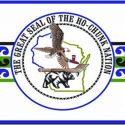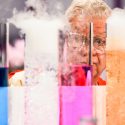Chancellor Mnookin meets with leaders in central Wisconsin
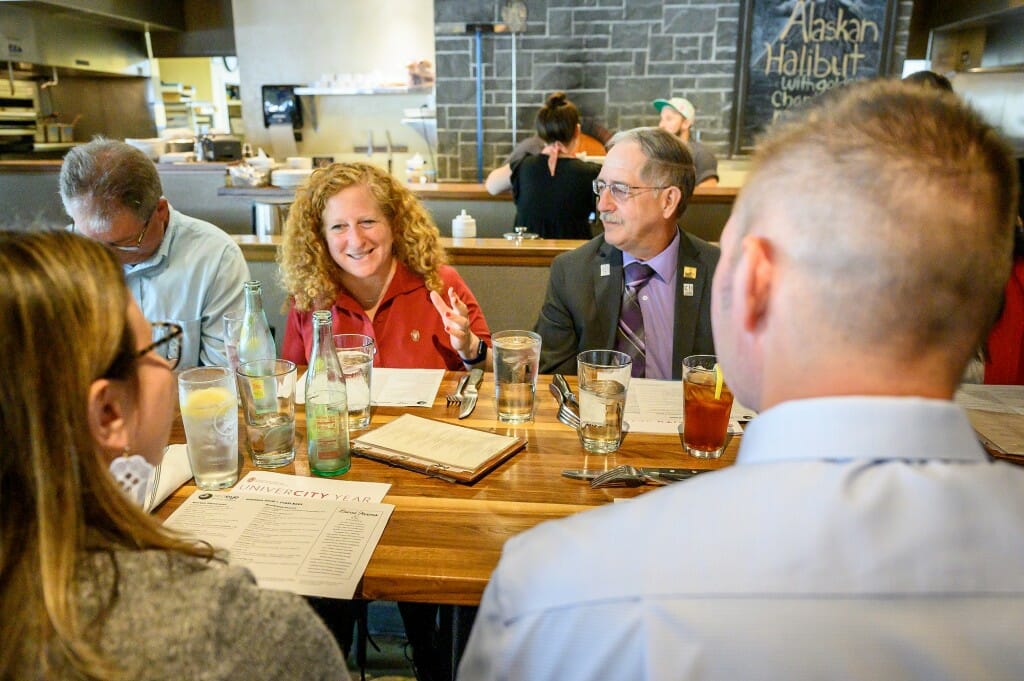
Chancellor Mnookin has lunch with (clockwise from the chancellor) Marathon County Board Chair Kurt Gibbs, Extension area direcror Jason Hausler, Wausau Mayor Katie Rosenberg, UniverCity Year Program Manager Shelly Strom and Marathon County Conservation Program Manager Dave Mack, at Red Eye Brewing in Wausau. Photo: Althea Dotzour
As students returned to classrooms this week on UW–Madison’s campus, Chancellor Jennifer Mnookin is also listening and learning in communities across Wisconsin.
The chancellor began Thursday morning by meeting with the Great Lakes Inter-Tribal Council Board of Directors, comprised of the elected leaders of 11 federally recognized Native nations of Wisconsin and one Native nation from Michigan, and stopping at the College of the Menominee Nation in Keshena.
She met with Wausau and Marathon County leaders at lunch to talk about UW–Madison projects and partnerships, and toured a prominent alum’s ginseng farm and production facility.
“This has been a wonderful opportunity to see more of this great state,” Mnookin said.
The chancellor will next travel to southwestern Wisconsin on Monday, touring a dairy farm in Lone Rock and UW–Platteville’s Pioneer Farm. The visit will highlight the Dairy Innovation Hub with UW–Platteville and UW–River Falls. She visited Milwaukee, Green Bay and Door County in August.
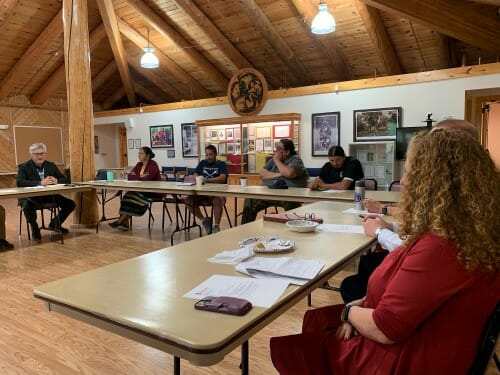
Chancellor Mnookin, right, meets with leaders at the College of the Menominee Nation. Photo by Aaron Bird Bear
UW–Madison has a transfer partnership with the College of the Menominee Nation (CMN). The partnership provides a path to guaranteed UW–Madison admission for students who enter CMN as freshmen and complete in three academic years, or 60 transferable credits.
After the meeting with tribal leaders and a discussion at the college, Mnookin said she is committed to exploring ways to increase Native American student enrollment and success, and to grow partnerships with the college.
In Wausau, the chancellor met with Wausau Mayor Katie Rosenberg and Marathon County Board Chair Kurt Gibbs, as well as UW-Extension and UniverCity Year staff.
The UniverCity Year program works with community partners who identify projects that would benefit from UW–Madison expertise. Faculty from across UW–Madison incorporate the projects into their courses, and UniverCity Year staff provide administrative support to ensure a successful collaboration.
Marathon County has been in the current 3-year cohort of the program, and has partnered with UniverCity Year on projects including evaluating and improving ADA compliance, reconstructing the intersection of Grand Avenue and Forest Street in Wausau, and planning a rural bicycling network and future bike infrastructure in Marathon County.
Dave Mack, Planning Manager for Marathon County’s Conservation, Planning and Zoning Department, said UniverCity Year is “bringing the experience of the university to the community. It’s a win-win for everybody.”
Mnookin said the program gives students an incredible educational experience while improving communities and working with municipalities and non-profits to help meet their needs.
“It truly is the Wisconsin Idea in action,” Mnookin said. “We want everyone to succeed and thrive.”
Rosenberg said it was clear that the chancellor takes an interest in the well-being of the community. “I’m excited to see where this partnership can go,” she said.
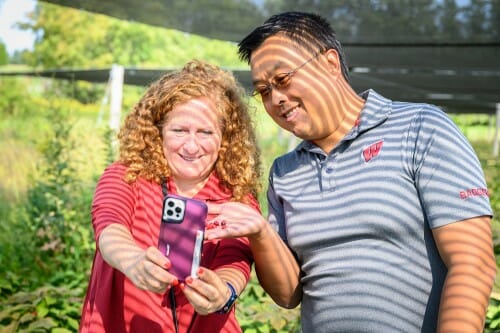
Chancellor Mnookin takes a selfie with Will Hsu, president of Hsu’s Ginseng Enterprises, Inc., who is holding red ginseng berries at Hsu Ginseng in Wausau. Ginseng is grown under shade cloth because ginseng is a woodland plant and too much direct sun will kill the plant. Photo: Althea Dotzour
At Hsu Ginseng Enterprises, Mnookin heard from President Will Hsu (BBA ’00) about the challenges facing the industry. Ninety-five percent of the nation’s ginseng crop is grown in Wisconsin, and 90-95 percent of Wisconsin-produced ginseng is grown in Marathon County.
Ginseng has become one of the state’s leading export commodities, and in peak years contributes as much as $100 million to the local economy, Hsu said. A challenging tariff environment with China has hindered ginseng sales overseas, and the industry is now looking toward research opportunities to expand the market domestically.
“This is an amazing enterprise,” Mnookin said after viewing one of Hsu’s ginseng gardens.
Tags: alumni, chancellor, Native Nations, outreach

